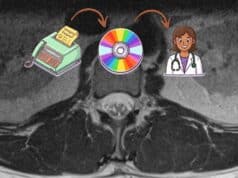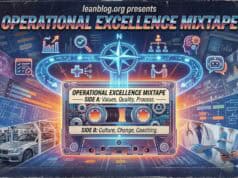Enhancing Workplace Well-being and Patient Care Through Lean Initiatives

Joining me for episode #230 is Paul DeChant, MD, MBA to talk about reducing burnout, especially physician burnout, through Lean.
Paul (see his bio here) is the former CEO of Sutter Gould Medical Foundation, a 300-physician multispecialty medical group in California's Central Valley. Before that, he had stints at organizations including Geisinger Health System and the Palo Alto Medical Foundation. He is now a consultant and executive coach for Simpler Healthcare.
He has also been blogging, and some of Paul's recent posts include:
- Physician Engagement – Who Should Fix Our Broken Processes?
- Is There a “Best Practice” for Lean in Healthcare?
- Why is Physician Engagement in Lean Even an Issue?
Streaming Player:

Key Discussion Points
- Dr. DeChant's Introduction to Lean: From being an OR orderly to leading healthcare organizations, Paul's journey highlights the natural progression to Lean thinking to solve workflow inefficiencies and enhance patient care.
- Challenges in Healthcare Practices: Addressing the “pain of practice” and how increased demands, regulatory pressures, and evolving healthcare models have reshaped the practice environment.
- The Role of Lean in Reducing Burnout: How Lean can act as preventive medicine by focusing on workflow improvements and harnessing team efforts to alleviate the stressors of modern healthcare.
- Leadership and Lean Culture: The necessity of visible, committed leadership in driving Lean transformations and creating supportive environments.
- Balancing Standardization with Flexibility: Overcoming misconceptions about standardization, emphasizing individually designed work by the teams involved to enhance care while maintaining personal autonomy and professional judgment.
Memorable Quotes
- “Lean is preventive medicine for burnout.” – Dr. Paul DeChant
- “It's not about the person, it's about the process.” – Dr. Paul DeChant
- “Harboring creativity in frontline staff is vital yet often overlooked.” – Mark Graban
Tune into this enlightening exploration of how Lean methodologies are pivotal in reshaping healthcare environments to improve efficiency and enhance caregiver well-being. Whether you're a healthcare leader or a Lean enthusiast, there's something insightful in store for everyone.
For a link to this episode, refer people to www.leanblog.org/230.
For earlier episodes of my podcast, visit the main Podcast page.
3 Actionable Takeaways from the Lean Blog Podcast
- Create a Lean Culture in Your Organization
- Incorporate Lean principles into your workplace to address inefficiencies and promote a culture of continuous improvement. Dr. Paul DeChant emphasizes that Lean is not just a set of tools, but a transformative approach that should start from leadership and flow through all levels of the organization. Dr. DeChant notes that when implementing Lean, “the CEO has to be visibly leading it, advocating for it, and communicating that all the time.”
- Prioritize Employee Well-being to Prevent Burnout
- Develop strategies to reduce burnout by focusing on worker well-being and creating a supportive work environment. Lean can act as preventive medicine for burnout by removing unnecessary stressors in workflows, thus fostering a healthier workplace. Dr. DeChant shares that Lean helps move from “overbearing management to supportive management, where leaders are teachers and coaches” and highlights the importance of creating “healthy workplaces.”
- Leverage Standard Work to Enhance Efficiency and Care Quality
- Implement standardized work practices in healthcare settings to improve efficiency and quality of care while maintaining flexibility. Standardization helps eliminate variability in processes, ensuring high-quality outcomes in patient interactions. Dr. DeChant asserts that “standard work is the best way we know how to do something at the moment” and is constantly being improved upon by those who do the work.
Discussion Questions
- The Role of Standardization in Healthcare
- How can healthcare organizations achieve a balance between necessary standardization for efficiency and allowing healthcare professionals the autonomy and flexibility needed to adapt to individual patient needs? In what ways might standardized work contribute to or hinder more personalized patient care?
- Burnout and Preventive Measures
- Considering Dr. Paul DeChant's perspective on burnout in the healthcare industry, what preventive strategies could be implemented early in medical careers to mitigate burnout? How might the integration of Lean methodologies contribute to reducing stress and improving resilience among healthcare professionals?
- Leadership and Culture Change
- Discuss the role of leadership in driving cultural change towards Lean processes within healthcare settings. How does the involvement of senior leaders, particularly CEOs, impact the successful adoption and sustainability of Lean methodologies? Can Lean transformations be truly effective without direct leadership engagement?
If you’re working to build a culture where people feel safe to speak up, solve problems, and improve every day, I’d be glad to help. Let’s talk about how to strengthen Psychological Safety and Continuous Improvement in your organization.








